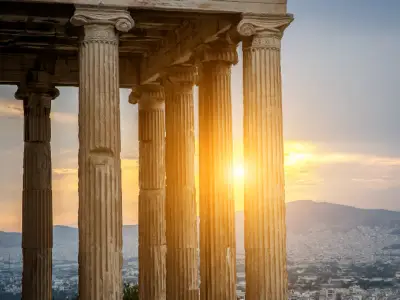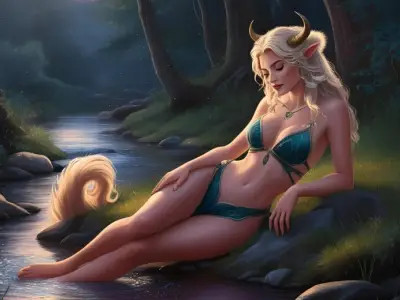Balder, sometimes called Baldr, Baldur or Baldor, is the Norse god of light, radiance and courage. He is a Æsir god who resides in Asgard with his parents, Odin and Frigg and brothers. Adored by nearly all of the Æsir gods, Balder's tale is steeped in both admiration and profound sorrow. Join us as we explore the life of the god of light, delve into the reasons behind his widespread adoration, and unravel the complexities surrounding his pivotal death and its lasting significance.
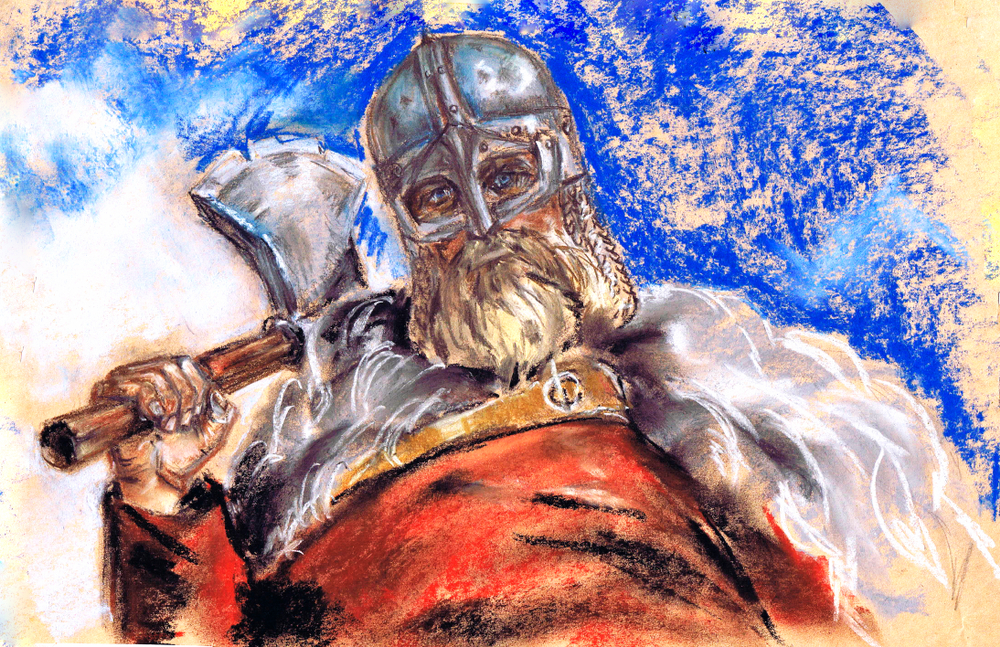
Jump to:
Who is Balder?
In stark contrast to his depiction in the God of War franchise, in which he took on a more sinister role, Balder in Norse mythology is a beautiful and inspiring Norse deity who was amongst the most popular gods in Asgard. The gods loved him for his unrivalled beauty, wisdom and overall peaceful nature. Balder's deep knowledge of healing herbs also earned him the love and respect of humans, marking him as a figure of benevolence in both Asgard and Midgard.
Despite being such a commendable character, it is perhaps ironic that his tragic demise is the most well-known event in his life. His death, foreseen in his nightmare-ish dreams, was brought about because of the primary antagonist of Norse lore, Loki. The fatal scheme, involving a blind god and a seemingly harmless sprig of mistletoe, highlights the struggle between good and evil within the cosmos.
Want to put your knowledge of the Norse pantheon to the test?
Centre of Excellence has you covered.
Visit our Norse Gods and Goddesses Hub to sample the first 2 modules of our £127 Norse Mythology Diploma Course for FREE
What is Balder the God of In Norse Mythology?
Balder is often associated with purity, peace and forgiveness. While he is never underpinned as the god of a specific domain, he is often seen as the god of light, radiance, joy, and beauty.
Unlike many other Norse gods who are associated with specific elements of nature, warfare, or craftsmanship (for example, the god of thunder or vengeance), Balder's domain is more abstract, focusing on the spiritual and moral qualities that contribute to the well-being and harmony of the gods and the broader cosmos.
What Are Balder’s Powers?
Balder’s powers include superhuman strength that’s superior to that of the average Asgardian male. Like all Asgardians, he has superhuman endurance and longevity. He is immune to all earthly diseases and has some resistance to magic.
His most famous power is invulnerability. While his ability to be invulnerable is quite well known, what is less well known is that Balder acquired this unique ability in a fascinating way. It started when his mother, Frigg, wanted to see her son unharmed. Following her efforts, she extracted oaths from all things, stating that they should not harm Balder. For a time, this made him immune to any form of injury or death. His invulnerability is central to the myth of his death, illustrating both his unique status among the gods and the tragic oversight that led to his downfall.
Who Are Balder’s Parents?
As previously alluded to, Balder is a famed son of Odin. If being the son of the AllFather isn’t enough, his mother was Frigg, who is the Queen of Asgard and the highest of the goddesses. Balder’s parentage helps to highlight his position of authority amongst the Æsir gods. While his parentage is interesting, what is nearly as fascinating is who his brothers are. Technically speaking, his brothers are Hodor and Hermod, but when you consider his half-brothers, the list becomes more extensive. Balder’s half-brothers include Thor, Vidar, Tyr, Heimdall, Hermod, and Bragi.
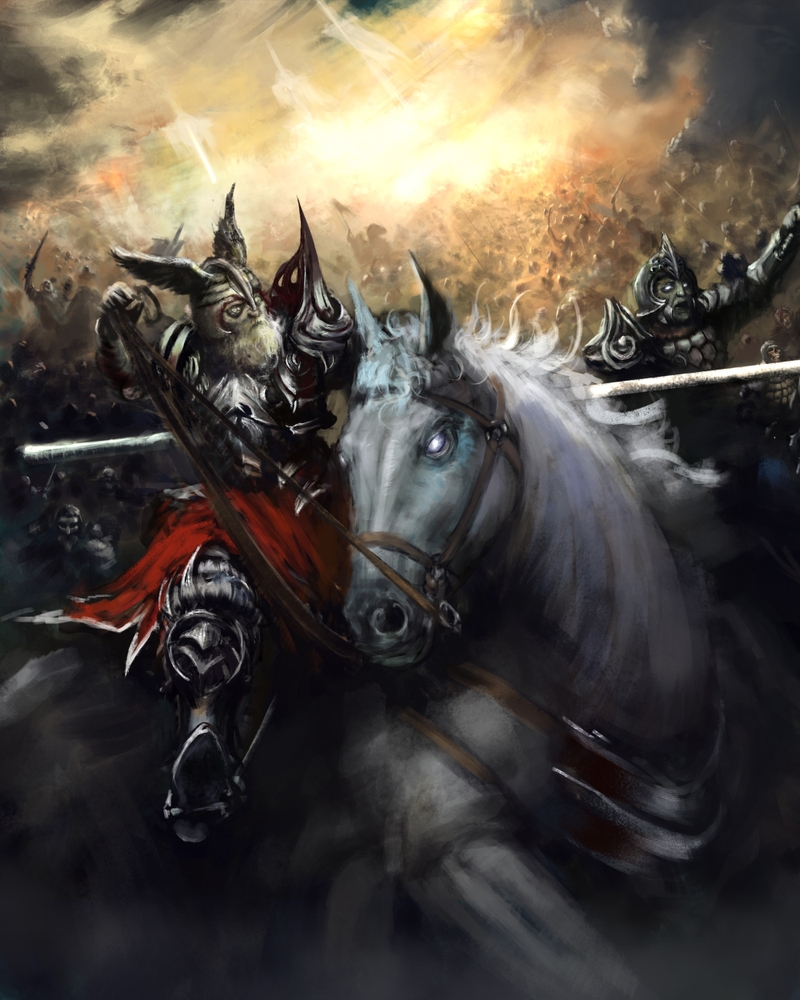
Who Was Balder Married To?
With his story being one of love and admiration, it stands to reason that Balder must have had a great love story in his life. Balder is married to Nanna, a goddess associated with love and passion. The two are said to be madly in love, and they even bore a child, Forseti, who is the god of justice and reconciliation. Although accounts of Nanna can vary greatly, she is often depicted as deeply devoted to Balder. Her role in Norse myths primarily revolves around her relationship with him, especially in the context of his death. The most poignant moment involving Nanna is her reaction to Balder's death. Unable to bear the grief of losing her husband, Nanna dies of a broken heart and is placed alongside Balder on his funeral pyre, which is set aflame and sent out to sea as part of his funeral rites.
What Did Balder Look Like?
While the physical appearance of the Norse gods has always been of interest to people, the fact that Balder is the god of beauty and is incredibly handsome makes the interest in his appearance seem more relevant. While it is always difficult to decipher exactly what a Norse god is meant to look like, there have been some clear indications regarding Balder’s appearance.
Alongside his unbelievably beautiful appearance, he is said to be incredibly radiant—so radiant, in fact, that he literally shines. His glowing brightness is said to signify purity and grace. Another common feature is his blonde hair. In keeping with his association with light, Balder is typically depicted with fair hair, which might have been seen as shining or golden, further enhancing his divine and radiant appearance.
Why Does Loki Hate Balder?
Loki does not have a pleasant relationship with most of the Norse gods, and Balder is no exception. It is commonly acknowledged that Loki hates Balder. While the exact reasoning behind his hatred is ambiguous, most sources point to Loki’s jealousy towards Balder as one of the main reasons for his hatred. Loki is said to be jealous of the attention and affection that Balder receives from the other gods, and Loki is angered that Balder boasts an ability akin to immortality.
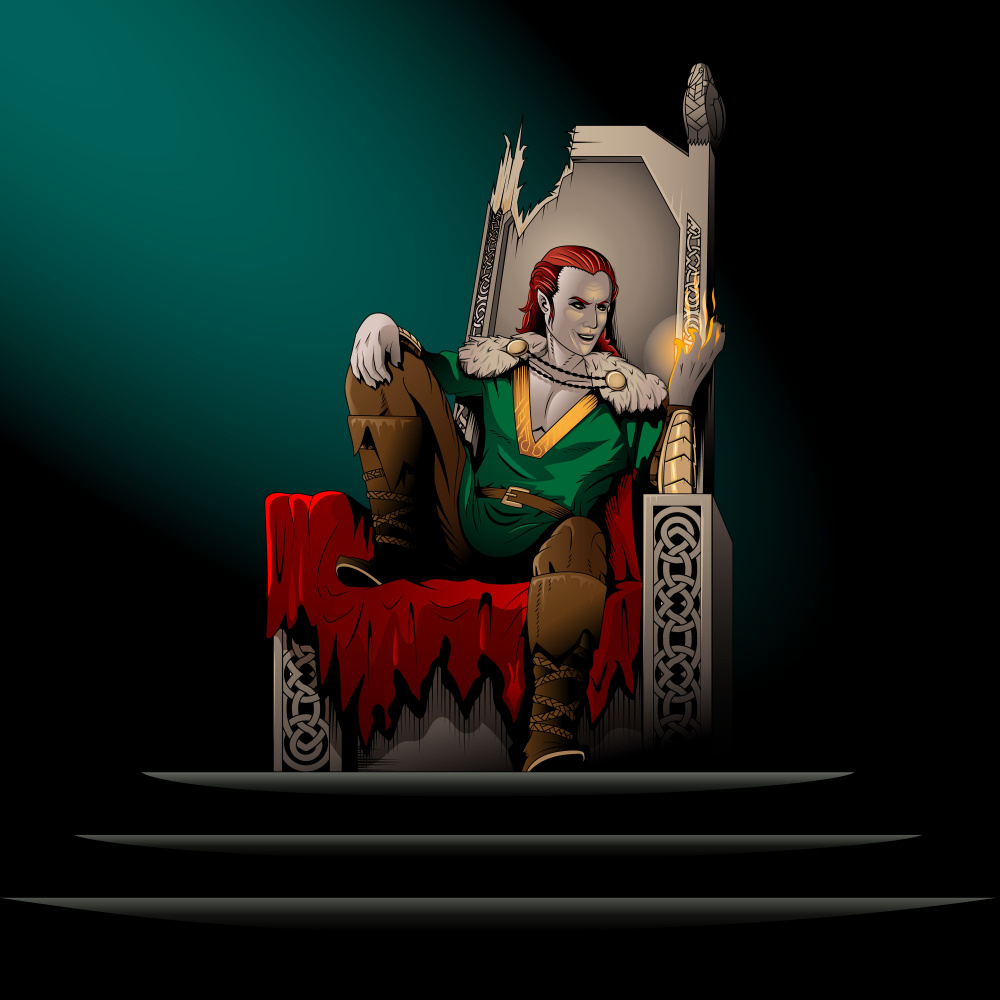
Who Killed Balder in Norse Mythology?
Arguably, the most famous thing about this popular Æsir god is his death. Part of the reason for the celebrity of Balder's death is due to the fact that, at least on paper, Balder was meant to be invulnerable to pretty much any threat. In order to understand Balder’s death, we must first consider Balder’s recurring nightmares.
According to Norse myth, Balder started to have recurring nightmares of his own death. His mother, Frigg, worried that her son’s dream prophesied his eventual fate, so sought to take oaths that made everything in the world swear not to harm her son. This made Balder invulnerable to most threats. However, she overlooked the mistletoe, deeming it too young and innocent to make an oath. Loki, who exhibited a strong and envious hatred for Balder, discovered this loophole and fashioned a weapon, which is described in many texts as either a dart, twig, or arrow.
Loki then placed this weapon in the hands of Balder’s blind brother, Hod. Loki tricked Hod by encouraging him to throw the weapon. Hod accidentally threw this weapon at Balder and the second it touched him, Balder died.
Interestingly, his death did not have to end all traces of him in the nine realms. After he died, Hel, the goddess of death, promised that if all beings in nature wept for him, Balder could return to Asgard. All beings did, in fact, weep for Balder… except for the giantess Tökk. Tökk, said by some to be Loki in disguise, sat in her cave and refused to shed a tear. Because of this, Balder could not return.
This event is pivotal in Norse mythology, as Balder's death signifies the beginning of the end for the gods and the onset of the universe-shattering Ragnarok.
What Did Odin Whisper In Balder’s Ear?
One of the greatest mysteries in Norse mythology is what Odin whispered in his dead son’s ear while he was on the funeral pyre. While the exact words he whispered are not known, there are many popular theories as to what was said.
Some believed he whispered parting final words of wisdom. However, the most popular belief is that Odin advised Balder of his return to Asgard after the events of Ragnarok. It is sometimes believed that Odin acquired the knowledge of his son’s return by sacrificing his eye to Mimir and the Well of Wisdom.
Did Balder Return?
As potentially foretold by Odin’s advice, Badler did return after Ragnarok's cataclysmic events. After Ragnarok, it is said that Balder comes back from the dead and returns from Hel, the realm of the dead. He and his brother, Hod, are reconciled and return to inhabit a renewed world, free from the corruption and conflicts of the old one. The two brothers are pinnacle figures in the ruling and success of the new world.
Learn More About Norse Mythology from the Centre of Excellence
If you are interested in learning more about the expansive and diverse world of Norse mythology, be sure to visit our Norse Gods and Goddesses hub. There, you can access the first two modules of our fantastic Norse mythology diploma course for FREE. There is so much more to learn about Balder and the other Norse gods, so why not enrol today?
Want to put your knowledge of the Norse pantheon to the test?
Centre of Excellence has you covered.
Visit our Norse Gods and Goddesses Hub to sample the first 2 modules of our £127 Norse Mythology Diploma Course for FREE


